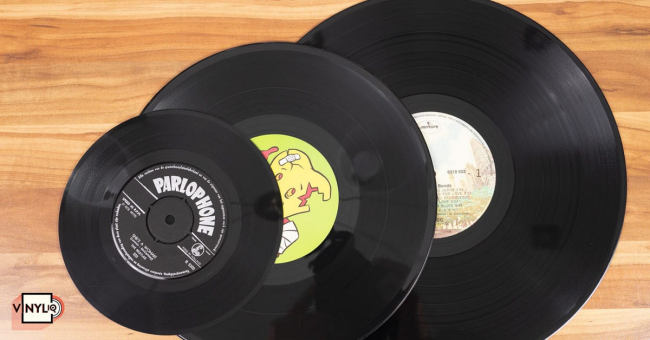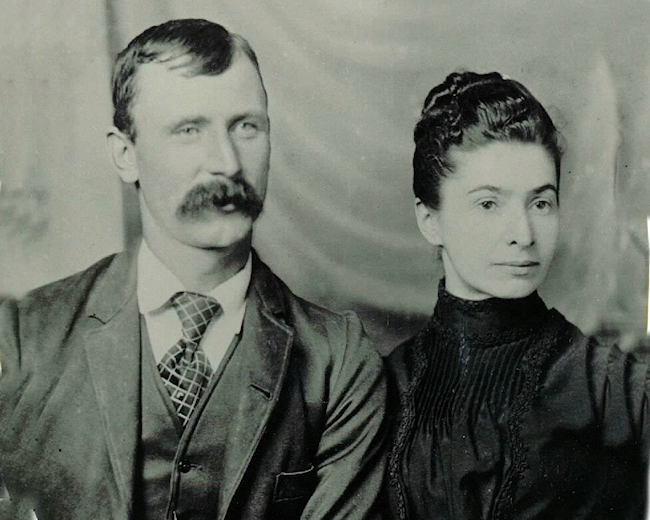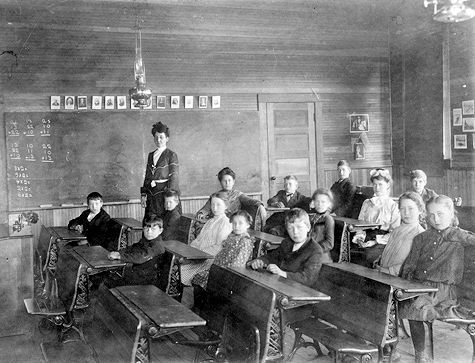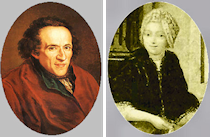History
An Autobiography
Music in History
“We had 45 RPM records and music genres from Rock-n-Roll to Pop. It has lasted for 70 years”
 Music has always played a significant role in my life, despite my inability to sing or play any instruments. But I discovered early on that I could “play” a radio and “play” records. When the radio stations didn’t deliver what I wanted, I turned to my collection of 78 rpm records.
Music has always played a significant role in my life, despite my inability to sing or play any instruments. But I discovered early on that I could “play” a radio and “play” records. When the radio stations didn’t deliver what I wanted, I turned to my collection of 78 rpm records.
I was quite young when I began playing records on our Victrola. These bakelite discs were fragile—prone to cracking or breaking—so I handled them with care. My mother favored the Ink Spots, while I preferred the Andrew Sisters. She loved to recount the time I saw three nuns walking down the street and asked if they were the Andrew Sisters.
One evening, while babysitting my younger siblings, I tried to create a nightclub ambiance by draping T-shirts over the lamps in our living room. It certainly set a mood—but it also set a fire. Thankfully, the shirts catching fire caused no damage, but I learned a valuable lesson about incandescent lamps and airflow.
I was not a singer. As the nuns at school frequently reminded me, my singing “threw everyone else off key.” Still, I cherish the memories of our family singing around my grandmother Tyrrell’s upright player piano. The piano roll—stiff paper with perforations—dictated the notes, and we all knew the lyrics to songs like My Blue Heaven, Near You, Don’t Fence Me In, If You Knew Susie, Me and My Shadow, and countless other classics. My father, a talented singer, often serenaded my mother—Peggy—with Peg of My Heart.
Since singing wasn’t my strength, I became a dancer. My parents had enrolled my sister and me in tap dance lessons, but the lessons were short-lived—either because we moved or because I was the only boy in the class. But those lessons laid the foundation for a lifetime of dancing: Lindy Hop and Jitterbug in my teens, Limbo in my twenties, Disco in my forties, and Ballroom in my sixties.
From our Victrola to grandmother’s piano, I was always fascinated by devices that played music. As a teenager, I worked for Mae and Peg Walker, whose antique collection included a Regina Music Box that played 15½-inch metal disks. An arm secured the disc, allowing its tabs to pluck the teeth of a comb and produce rich, full musical notes. The sound was mesmerizing.
After landing full-time work at the library, my first major purchase was a portable Zenith Cobra-Matic Hi-Fi. Thanks to my experience as a ham radio operator, I understood that High Fidelity was achieved using two 50C5 electron tubes in a “push-pull amplifier.” Hi-Fi was cutting-edge technology, and I bought a new 45 rpm record every payday.
I often brought my records and Hi-Fi to house parties, where my music selections—Elvis, the Big Bopper, Buddy Holly, the Righteous Brothers—were a hit. The most popular record was Smoke Gets in Your Eyes by The Drifters. I played it so often I had to buy a new copy. Conway Twitty was another favorite, but someone stole It’s Only Make Believe and Mona Lisa at one of the parties. His records were hard to find, and I never managed to replace them.
During my teenage years, I don't recall “Disc Jockeys” ruling nightclubs but I often hauled my portable phonograph equipment and records to dances and parties. I’ve often wondered if I wass a pioneer in the DJ concept. Recent searches suggest Bob Casey introduced the two-turntable system to the U.S. in 1955—but I was definitely onto something..
I could identify songs and artists by the color of the record label and locate any requested tune in seconds. Forty-five RPM records could be stacked neatly on the spindle, ready to drop one after another, giving me the perfect setup—not just to play music, but to dance to it. While others stood behind the turntables, I moved with the music. Perhaps I was the first “dancing DJ.”
Then came the military. Basic training was so intense I barely remembered my record collection. When I returned home on my first leave from the Air Force, my records and Hi-Fi were gone. After that came marriage, children, college, careers—and no time for music.
Family in History
“Joseph Fetter and Jennie Ferree are my great grandparents”
 My family's heritage can be traced back to John Ferree, who was born to Philip and Sarah (Evans) Ferree on May 27, 1761, in Strasburg, Pennsylvania. He served as a private in the American Revolution, fighting under Captain John Slaymaker's Company of the 7th Battalion in the Lancaster County Pennsylvania Militia. He wed Miss (Nancy) Rebecca Marsh on January 1, 1792, in Augusta, Kentucky.
My family's heritage can be traced back to John Ferree, who was born to Philip and Sarah (Evans) Ferree on May 27, 1761, in Strasburg, Pennsylvania. He served as a private in the American Revolution, fighting under Captain John Slaymaker's Company of the 7th Battalion in the Lancaster County Pennsylvania Militia. He wed Miss (Nancy) Rebecca Marsh on January 1, 1792, in Augusta, Kentucky.
John was a Methodist Circuit rider, traveling by horseback across Southwestern Ohio. He attended a seminary in Augusta before relocating to Ohio with his family. The Methodist church in Boston (now Owensville) was established in John's home, where preaching took place until a church was constructed in Boston in 1831.
John and Nancy Ferree had twelve children. Their eighth child, Snowden Ferree, was born in 1804. Snowden married Charlotte Goldtrap, and their third child, Richard Lewis Ferree, was born in 1832 in Owensville, Ohio. On March 12, 1854, at the age of 22, Richard Ferree married Nancy Amanda Snider, the daughter of Sarah Wilson and David Snider.
At the onset of the Civil War on July 27, 1861, Richard Ferree enlisted in Company C of the 2nd Infantry Regiment, Ohio Volunteers. He fought alongside his two brothers, John Ferree and George W. Ferree. When he went to war, his older brother, William G. Ferree, assisted in caring for his wife and children. William was in poor health and did not participate in the war.
On September 19, 1863, in the Civil War battle at Chickamauga Creek, John Ferree was killed, and George W. Ferree was wounded while carrying John's body from the battlefield. Richard Ferree was among 35 Union soldiers captured that day, all of whom ultimately died at Andersonville prison. Richard died on August 10, 1864, at the age of 32 and is burried in a trench grave #5249 alongside 13,000 soldiers who perished at Andersonville Prison.
Meanwhile, on October 26, 1785, in the Tyrolean region of Austria, Jean Christian Iuen was born to Jean Joseph Iuen and Barbe Berthold Iuen. Known as Christian, he married Marguerite Natherer, the daughter of Francois Xavier Natherer and Marie Ursele Natherer of Belfort, France. Christian and Marguerite had eight children, three boys and five girls. Tragically, four of the girls died before reaching the age of two, and Marguerite passed away at the young age of forty-four.
Christian arrived in New York on May 23, 1838, aboard the bark Dido, accompanied by his second wife Catherine, his three sons, and his only daughter, Ursala Iuen. He settled in Boston (now Owensville), Clermont County, Ohio, dedicating his life to farming.
The Iuens were among the earliest settlers in Owensville, Ohio. Francis X. Iuen established a store and constructed a hotel, one of the first brick buildings in Owensville. Along with his brother Joseph, he owned a mill in nearby Stonelick Township. Joseph Iuen would later own a farm, tavern, hostelry, and stables in Terrace Park, Ohio. John B. Iuen founded the Milford National Bank (now part of Bank One), the Valley Enterprise newspaper, and the Terrace Park Country Club.
Ursala Iuen married John Peter Fetter, who operated a horse-drawn bus service between Fayetteville and Perintown, Ohio. Their son, John Christian Fetter, opened a store in Owensville, Ohio, selling farm implements and running a dry goods shop across the street. John Christian's younger brother, Joseph Fetter, married Jennie Ferree, the daughter of Richard Ferree. Joseph Fetter and Jennie Ferree are my great-grandparents.
In the winter of 1839, another family set sail for America. John Peter Craver and Elizabeth Sibile Zumbro Craver, along with their four children and friends, embarked on a sailing vessel from Havre to America. Peter Craver was born on September 8, 1801, in Trisch, Kingdom of Prussia, and married Elizabeth, also from Trisch.
After a sixty-day voyage during which they faced several storms, they safely arrived in Baltimore in early spring the following year. Peter and Elizabeth settled in Cincinnati, Ohio, where they found a few brick houses and log cabins. Dissatisfied with the location, they moved to a farm in Stonelick Township, where their youngest child, Jacob, was born.
Peter Craver engaged in chopping wood, converting it into charcoal, and shipping it to the Cincinnati market. By 1849, Peter and Elizabeth owned a comfortable home in Boston (now Owensville), Clermont County, Ohio, which they purchased from Henry Kline. Their son Jacob married Margaret Schmidt, and on July 8, 1867, Rose Craver was born.
Rose Craver married Joseph Sebastian Brown, the son of Phillip Braun and Annamarie Seifert. Joseph was a successful banker who changed the family name from Braun to Brown to align with its American pronunciation. Their eldest son, George Jacob Brown, married Clara Edith Fetter, the daughter of Joseph Fetter and Jennie Ferree.
George and Edith Brown are my maternal grandparents. They had four children: George Joseph Brown, Margaret Ellen "Peggy" Brown, Rita Jane Brown, and Donald Robert Brown. Joseph passed away at the young age of 31. Donald, their youngest child, survived World War II after being critically wounded during The Battle of the Bulge. Their youngest daughter, Rita, married Robert Brandner.
Their eldest daughter, Margaret Ellen "Peggy" Brown, married Richard Tyrrell, who was born on March 30, 1917, in Canada and adopted by Charles Tyrrell and Julia Mitchel of Terrace Park, Cincinnati, Ohio. Dick Tyrrell served in the Merchant Marines during WWII. After the war, he worked at Autolite Manufacturing until he became part owner and the meat cutter at J & R Foods.
Peggy Brown and Richard Tyrrell are my parents. I have a younger sister, Donna Sue Tyrrell Juniet, and a younger brother, James Mitchel. As adults, we lived far apart, raising our children in different states.
Jim married Ina Dorst, who was the mother of his four children. Ina passed away in 1988 from lupus, and Jim remarried. He remained in Cincinnati until the loss of his second wife, Marilyn, and his declining health prompted him to move to Medford, Oregon, to be with his youngest daughter, Angel.
Donna married Robert Juniet and raised her three sons in Florida. In retirement, Donna and Bob settled in Valdosta, Georgia.
Meanwhile, I married Arlene A. Hart from Massena, New York, while stationed at Plattsburgh Air Force Base in New York. My eldest son, Robert, was born in Plattsburgh. However, the end of my military service led us to relocate to Lansdale, Pennsylvania, where my youngest son, Joseph, was born.
Education in History
“The shift from reality to attitude has left many students adrift”
 If you’d like to challenge your high school or college education against a 19th-century elementary school curriculum, the 1895 Salina, Kansas 8th Grade Final Exam offers a sobering benchmark.
If you’d like to challenge your high school or college education against a 19th-century elementary school curriculum, the 1895 Salina, Kansas 8th Grade Final Exam offers a sobering benchmark.
This exam, originally administered in Salina, Kansas, and preserved by the Smoky Valley Genealogical Society, tested students on arithmetic, grammar, history, geography, and orthography—subjects that once formed the backbone of American education.
Today, those foundational disciplines have been overshadowed. Arithmetic has given way to calculators, grammar to autocorrect, history to dissent, and geography to GPS. Basic physics and biology—once taught with clarity and purpose—are often sidelined in favor of social topics like environmental theories and sexual orientation. The erosion of core academic rigor leaves students ill-equipped to reason, calculate, or contextualize the world around them.
The modern perspective that “discovery” cannot occur where inhabitants already exist seems narrow-minded. Columbus’s voyage undeniably revealed a previously unknown continent between Europe and Asia—just as Newton “discovered” gravity, though it had always been present. Discovery, in its true context, means recognition, documentation, and dissemination of information—not the absence of existance.
Likewise, the notion that a two-degree change in global temperature can melt polar ice ignores basic physics. Water freezes at 32°F (0°C), the average summer temperature at the North Pole. In winter, the North Pole averages around –40°F (–40°C)— a magic number in the world of extreme cold where Fahrenheit and Celsius finally agree. While climate systems are complex, the idea that renewable energy can "fix it" betrays scientific knowledge.
When college students struggle to name the first president of the United States, name a country in North America, or calculate annual earnings at $1 per day, it’s not just a failure of memory—it’s a failure of curriculum. The shift from reality to attitude has left many students adrift, unable to connect dots across disciplines or think critically about the world.
Education should challenge assumptions—not just express. It should equip students with tools to build, question, and understand. And perhaps, by revisiting the rigor of the past, we can better prepare minds for the future.
ARITHMETIC
(Time, 1.25 hours)
(Time, 1.25 hours)
- Name and define the Fundamental Rules of Arithmetic.
- A wagon box is 2 ft. deep, 10 feet long, and 3 ft. wide. How many bushels of wheat will it hold?
- Find the cost of 6720 lbs of coal at $6.00 per ton.
- If a load of wheat weighs 3942 lbs. what is it worth at 50 cts./bushel, deducting 1050 lbs. for tare?
- District No. 33 has a valuation of $35,000. What is the necessary levy to carry on a school seven months at $50 per month, and have $104 for incidentals?
- Find the interest of $512.60 for 8 months and 18 days at 7 percent.
- What is the cost of 40 boards 12 inches wide and 16 ft. long at $20 per metre?
- Find bank discount on $300 for 90 days (no grace) at 10 percent.
- What is the cost of a square farm at $15 per acre, the distance around which is 640 rods?
- Write a Bank Check, a Promissory Note, and a Receipt.
GRAMMAR
(Time, one hour)
(Time, one hour)
- Give nine rules for the use of Capital Letters.
- Name the Parts of Speech and define those that have no modifications.
- Define Verse, Stanza and Paragraph.
- What are the Principal Parts of a verb? Give Principal Parts of do, lie, lay and run.
- Define Case. Illustrate each Case.
- What is Punctuation? Give rules for principal marks of Punctuation.
- Write a composition of about 150 words and show that you understand the practical use of the rules of grammar.
U.S. HISTORY
(Time, 45 minutes)
(Time, 45 minutes)
- Give the epochs into which U.S. History is
divided.
- Give an account of the discovery of America by Columbus.
- Relate the causes and results of the Revolutionary War.
- Show the territorial growth of the United States.
- Tell what you can of the history of Kansas.
- Describe three of the most prominent battles of the Rebellion.
- Who were the following: Morse, Whitney, Fulton, Bell, Lincoln, Penn, and Howe?
- Name events connected with the following dates: 1607; 1620; 1800; 1849; 1865.
GEOGRAPHY
(Time, one hour)
(Time, one hour)
- What is climate? Upon what does climate depend?
- How do you account for the extremes of climate in Kansas?
- Of what use are rivers? Of what use is the ocean?
- Describe the mountains of North America.
- Name and describe the following: Monrovia, Odessa, Denver, Manitoba, Hecla, Yukon, St. Helena, Juan Fermandez, Aspinwall and Orinoco.
- Name and locate the principal trade centers of the U.S.
- Name all the republics of Europe and give capital of each.
- Why is the Atlantic Coast colder than the Pacific in the same latitude?
- Describe the process by which the water of the ocean returns to the sources of rivers.
- Describe the movements of the earth. Give inclination of the earth.
ORTHOGRAPHY
(Time, one hour)
(Time, one hour)
- What is meant by the following: Alphabet, phonetic, orthography, etymology, syllabication?
- What are elementary sounds? How classified?
- What are the following, and give examples of each: Trigraph, subvocals, diphthong, cognate letters, linguals?
- Give four substitutes for caret 'u'.
- Give two rules for spelling words with final 'e'. Name two exceptions under each rule.
- Define the following prefixes and use in connection with a word: Bi, dis, mis, pre, semi, post, non, inter, mono, sup.
- Give two uses of silent letters in spelling. Illustrate each.
- Mark diacritically and divide into syllables the following, and name the sign that indicates the sound: Card, ball, mercy, sir, odd, cell, rise, blood, fare, last.
- Use the following correctly in sentences, cite, site, sight, fane, fain, feign, vane, vain, vein, raze, raise, rays.
- Write 10 words frequently mispronounced and indicate pronunciation by use of diacritical marks and by syllabication.
Love in History
“He had fallen hopelessly in love with Fromet but she was repulsed by his misshappen appearance”
 Moses Mendelssohn was the grandfather of the well-known German composer. Along with a rather short stature, he had a dreadful hunchback and was far from being handsome.
Moses Mendelssohn was the grandfather of the well-known German composer. Along with a rather short stature, he had a dreadful hunchback and was far from being handsome.
One day Moses visited a merchant in Hamburg who had a lovely daughter named Fromet. He fell hopelessly in love with her but Fromet was repulsed by his misshapen appearance. When it came time for him to leave, Moses gathered his courage and climbed the stairs to her room to take one last opportunity to speak with her. She was a vision of heavenly beauty, but caused him deep sadness by her refusal to look at him.
After several attempts at conversation, Moses shyly asked, "Do you believe marriages are made in heaven?" "Yes," she answered, still looking at the floor. "And do you?"
"Yes, I do," he replied. "You see, in heaven at the birth of each boy, the Lord announces which girl he will marry. When I was born, my future bride was pointed out to me and the Lord said, 'but your wife will be a hunchback.'"
"Right then and there I called out, 'Oh Lord, a hunchback woman would be a tragedy. Please Lord, give me the hump and let her be beautiful.'"
Then Fromet looked up into his eyes and was stirred by some deep memory. She reached out and gave Mendelssohn her hand and later became his devoted wife.
©Copyright 2001 Charles Tyrrell - All rights reserved
No part of this publication may be reproduced, stored, or transmitted in any form without prior permission of the author. Copyright Notice
No part of this publication may be reproduced, stored, or transmitted in any form without prior permission of the author. Copyright Notice